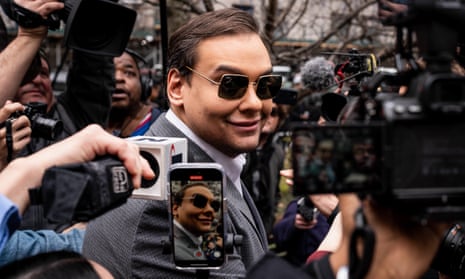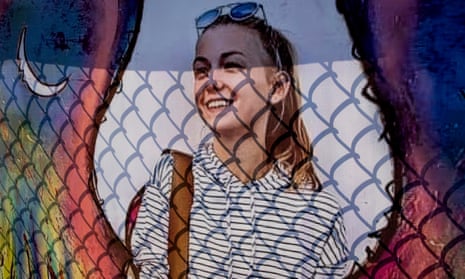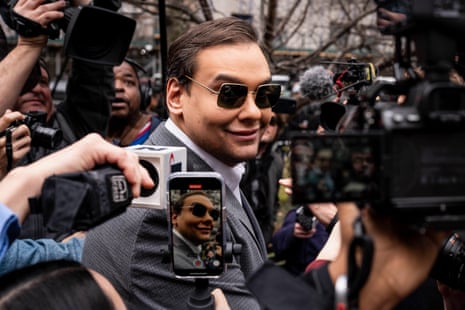
Italians Matteo Guarise and Lucrezia Beccari won gold at the 2024 European Championships in pair skating. Before this, the partner had been performing for a long time with Nicole Della Monica, who in an interview with Sport told why she feels sorry for Kamila Valieva, why many are afraid of Eteri Tutberidze, and why St. Petersburg is more beautiful than Moscow.
«Medvedeva for me she was a queen»
— How would you rate the level of the European Championship now?
— I can honestly say that last year the level was really very low. Many good couples took a break after the Olympics, so the season turned out to be poor. But this year the level has increased. Pairs from Georgia, Germany and Hungary demonstrated very good skating.
—Russian athletes are now unable to compete on the international stage. Have the competitions lost their entertainment value or have you, on the contrary, become more interested in watching them because there is competition between different countries?
— Russian athletes were good competition. Maybe not in all types. For example, among men, Russians sometimes took first place, sometimes not. So in this form and in dances the situation has not changed much: representatives from different countries have always had the opportunity to get on the podium.
— What about couples?
— Every time we had to show our maximum to take fourth place. The Russians were always ahead. You understood in advance that it would be very difficult, if not impossible, to surpass one of these pairs. Now the competitions have become more interesting in some ways, but, of course, I am very sorry that the Russian athletes found themselves in such a situation, because many of them were my friends.
< br>—Most recently, Matteo Guarise and Lucrezia Beccari won the European Championship. What emotions did you experience at that moment?
— Actually, I was very happy. I feel a sense of pride for their couple. They did an incredible job over the summer and performed well at every competition this season. Yes, there were mistakes, but in any case, Matteo and Lucrezia continued to demonstrate a high level of their skills. The European Championship was a good result of this work.
— Matteo switched from roller skating to figure skating only at the age of 22. By that time, you had already participated in the Olympics and even managed to end your career. Wasn't it scary to start all over again with a non-professional?
— It was very difficult. I actually ended my career after participating in the first Olympic Games and did not want to continue because I had achieved my main goal. I couldn’t think of any other motivation for myself. Perhaps it was because of my partner that I felt we had certain limits. At the very least, we did not match in terms of anthropometric data; the difference in height was too small. That's why I decided to finish figure skating. But a year later, Matteo came to me and suggested that I resume training. At that moment there were a lot of thoughts in my head: “I missed a year, I didn’t train so much. Can I even still jump?” In general, there were a lot of doubts. But step by step everything started to work out.

— When we are young, we don’t take much care of our body; we can skip warm-ups and cool-downs. But the older you get, the more you realize that you have to help your body. Thanks to this, you will not only recover better, but also become stronger. So, perhaps this is the right decision so as not to break the athletes’ bodies ahead of time.
—Skaters are increasingly trying to perform ultra-c elements. Are they necessary or is the risk not worth it?
— I don’t know, because I’ve never tried to perform them myself and I don’t realize all the force that needs to be applied for this. But I have seen many skaters who jumped them so easily. This is a real revolution. I can't say it's unnecessarily dangerous. Perhaps only for a certain body structure, because in order to jump them you must be very light and have a strong twist. Although for girls the situation is completely different. Sooner or later, a period comes when the girl turns into a woman and cannot jump as before. Then these little strong girls are upset that at the age of 16-17 they cannot perform elements that were easy for them. Perhaps increasing the age will prevent such problems.
—You said that you yourself have never tried quadruple twists or throws. Why?
— There were only a few people who tried similar elements at my age. Alena Savchenko tried to perform a triple axel throw, Sui Wenjing and Han Cong tried a quadruple twist. But there were still few such attempts. It was just a different time then.
—What is closer to you, Carolina Kostner’s component skating or Alexandra Trusova’s power skating?
—This is such a different skating! Everyone said about Trusova: “Wow.” She performed the most difficult jumps so easily. But as for Caroline, every time she stepped on the ice, your breath stopped. In the last year, Carolina has been so experienced, expressive, and the emotions we felt when she skated were truly indescribable.
— Have you experienced the same sensations from the skating of Russian girls?
— When Medvedeva just reached the adult level, for me she there was a queen. She never made mistakes and was always on top. Her skating was mesmerizing. Perhaps she was the one I liked the most.
— And if we talk about the last Olympics?
— It's a difficult question. Trusova, of course, had phenomenal jumping content, but I'm not sure she's my favorite. There were three Russians at the Olympics, and they were all so different. Nowadays I sometimes hear that new strong girls are appearing in Russia, but so far I have not been able to watch their skating.
— If we continue talking about the Olympics in Beijing, it was there that the doping scandal involving Kamila Valieva happened. The Americans have said a lot about this. How did the Italian team react to this situation?
“It didn’t affect us that much, so there weren’t such heated discussions.” I think the main problem concerns the American and Japanese teams, because they still have not received their medals. But I really regret the current situation, because it is very difficult to survive something like this. It’s sad to see such attention from journalists and the public being focused on such a young athlete. Think about it, she was only 15 years old. This is very sad.
— You admitted that you did not qualify for the gold medal. Then what was your motivation to exercise so hard? In Russia, if you don't take first place, you lose.
— I know that in Russia athletes approach competitions with exactly this attitude. It's just a different type of thinking. We are happy when we just compete, because in any case we are creating history for Italy in pair skating. Any result is already historical. I was only in fifth place at the World Championships, but that was a first for Italy. We are fully motivated to try to achieve more.

“Collaboration with Moser was the best period”
—You interned in Russia. What do you remember most?
— Cold (laughs). We trained for a year in St. Petersburg before the Olympics in Sochi. Then we returned back to Italy, because it was quite difficult for us in Russia. We were on our own, we didn’t know the language to communicate freely. About a season later we began collaborating with Nina Moser's group. They came to Italy as part of training camps in the summer, so we saw each other often. I think it was the best period for us, because we trained with very high-level athletes.
— How does training in Russia differ from training in Italy?
< br>
— Literally everyone. After our training in Russia, we tried to bring something into the Italian system. In Russia they work a lot on the smallest details, on the quality of the elements. This is what we understood in Russia, and what we tried to change here. They explained to us that it is better to make a lighter program, but with high-quality elements, and roll it without errors. This will allow you to score more points.
— Do you spend a lot of time training in Italy?
— In Russia, they definitely devote a lot more time to this. You have more opportunities, more skating rinks, a lot of ice. In Italy this is very difficult. For example, children may only find time to exercise after school. At the same time, there should not be too many people on the ice. Therefore, there are certain difficulties with this.

— How do you remember Nina Moser?
— She is very kind. Always protects his athletes. You could always come up and discuss your problems, say what you don’t like. She tried to communicate with us as equals and as much as possible.
— Were you able to find friends in Russia?< /strong>
— During our internship, we had the opportunity to meet Maxim Trankov and Ksenia Stolbova. It was a good period. When the Moser group came to Italy, we went to the lake. I can’t say that these were parties, after all, everyone was focused on training, but we had fun. In Moscow, Maxim invited us to visit him. That was cute. In fact, the time when we lived in Moscow and St. Petersburg was very different.
— By what?
— We had no friends in St. Petersburg. And in Moscow we had communication with these guys. But still, St. Petersburg is closer to me. Moscow is a good city, but St. Petersburg is simply beautiful. Very beautiful. I remember a funny incident. White nights have arrived in summer. And we thought: «What is this? Why is the sun still shining?» It was very difficult for us.
— Are you currently continuing to communicate with someone from Russia?
—After I finished my career, communication became much less. We can congratulate each other on the holidays, but we don’t communicate as much as before.
— There is a stereotype that Russians are very gloomy. Do you agree with this?
— I think so. We say that Russians are cold people.
— What dish do you remember most?
— I really liked the borscht. But to be honest, I didn't really like meat. In Italy we cook steaks completely differently. But I definitely liked the borscht.
— Do you know any Russian words?
— I tried to learn Russian on my own, I admit, it was difficult pretty hard. I can say something, for example: “Hi, how are you?”
“Tutberidze is a strong woman”
— Is Eteri Tutberidze known in Italy?
— It seems to me that she is known throughout the world. She always seemed to me a very strict, strong woman. I've never talked to her because she's like, «I'm here, but there's a wall around me, so don't talk to me.» But I think this is her strength.
— Tutberidze is now trying himself as a couples coach. How do you like her debut with Evgenia Tarasova and Vladimir Morozov?
— To be honest, I know her work with girls, but I don’t know much about her interaction with couples. I think Evgenia and Vladimir tried to do their best at the Olympics and tried to change their habits to become better. When you're trying to do it in a limited time, it's difficult to change anything radically. But change always works well the first time when everyone is excited. Then reality begins. Only after some time can you understand whether it worked. But Evgenia and Vladimir definitely showed a high result.
— Russian figure skater Maria Talalaikina tried to get into the Italian team. How do you feel about the fact that the team will include athletes not from Italy?
— If they have such an opportunity, why not? Unfortunately, Italian girls are not that strong. This year, the winner of the national championship took sixth place at the European Championship. It's not that bad. But after Caroline Kostner we didn’t have many good skaters. I know that our federation wants to create a strong team for the Olympics. For me, it is not so important where the athlete comes from. For example, Ivan Righini is from Russia, but he was one of us. If we can create a united, friendly team that will support each other, we are all for it.
—Maria also said that she had to work part-time to pay for training. Does the Italian Federation somehow help its athletes?
— The Federation gives money only to those who participate in the European Championship and the World Championship. They allocate money every month, but it is not enough. I know that in Russia the federation allocates more money to athletes, so when Russian figure skaters come to Italy to compete for our country, they are faced with a different reality. It's not so easy, they have to work at night. Italian athletes have a slightly different situation. Each skater belongs to the sports department of the police, and we receive a salary every month.
— So you didn’t have to work part-time?
— Later, Maria decided to return, and at the Russian Championship Tatyana Tarasova made a remark to her about her weight, saying that before going out in public, it is necessary to carry out a control weigh-in. Do they monitor the weight of athletes in Italy?
— Yes, but not so closely. I still had to keep myself in a certain shape so that my partner could easily throw me out or provide support. That's why I watched my weight. Maybe I didn’t weigh myself every day, but I still had control. The trainer may also say that you may need to lose some weight, but be sure to do so in a gentle manner.
— What would happen if Tatyana Anatolyevna’s phrase was said to an Italian athlete?
— That would be bad! Now the situation has become much tougher. The coach cannot touch the athlete or say bad words, because the child might tell his parents about it and the coach will simply be sued. Yes, perhaps coaches sometimes go too far and say too harsh words, but if you want to gain discipline, you must have a strict coach. Moreover, often, if the coach does not show the technique on you, the athlete may not understand what exactly he needs to do. How is it possible to work in this format? Especially with children. This is wrong.
— What is your job now?
— We can continue to work in the police after finishing our career, if we want. No one is going to fire you from there, so it’s a huge plus that you immediately have a stable job. Now I serve in the police, but, of course, I don’t have to patrol the streets. I work in the sports department.
— Looking back, are you satisfied with your career?
— Of course, you can always do better. But I will still say that I am completely satisfied with my path. Four Olympics is an incredible result. Yes, I haven’t won a single medal, but as an athlete I’m happy. I can be proud of myself.


























































Свежие комментарии